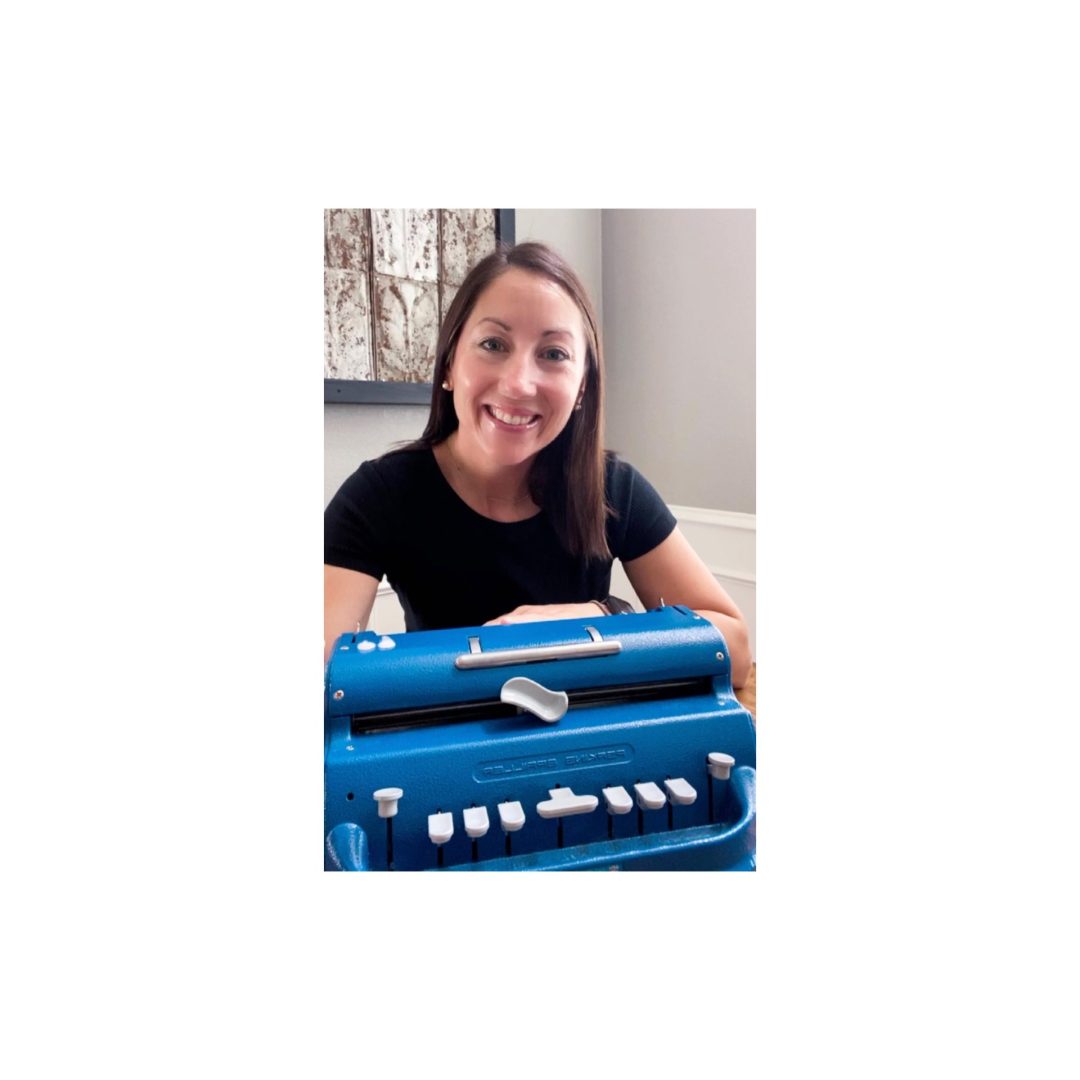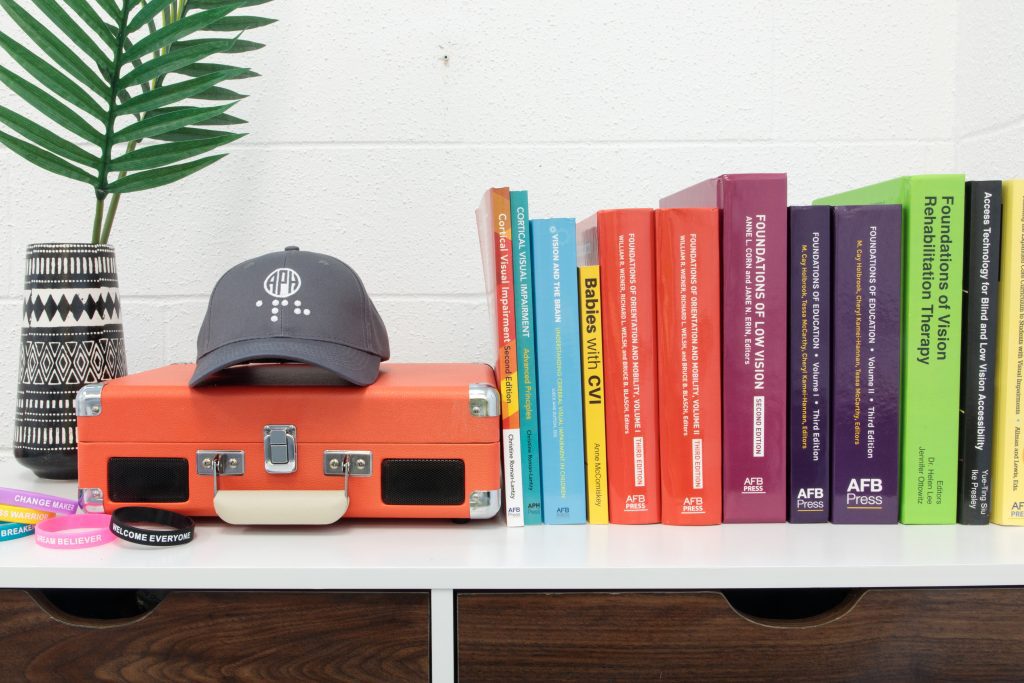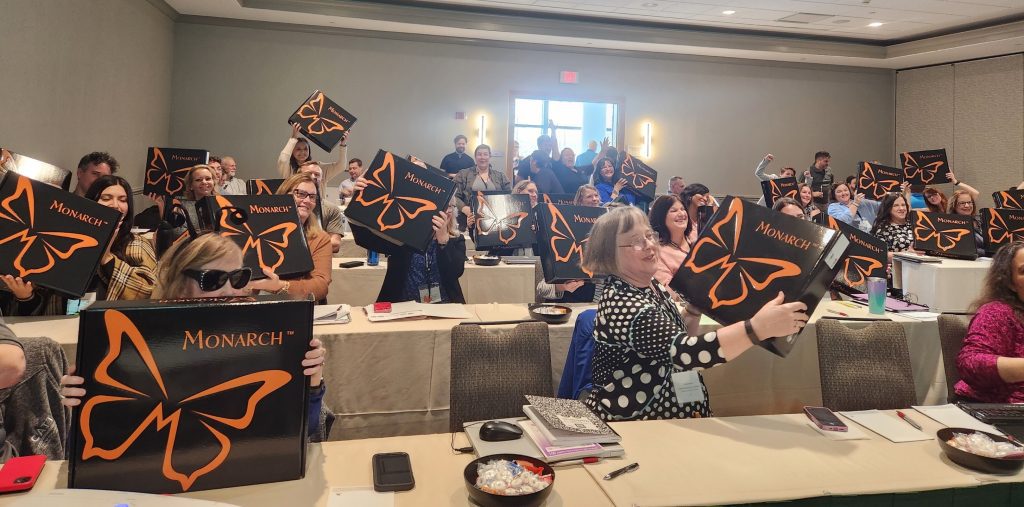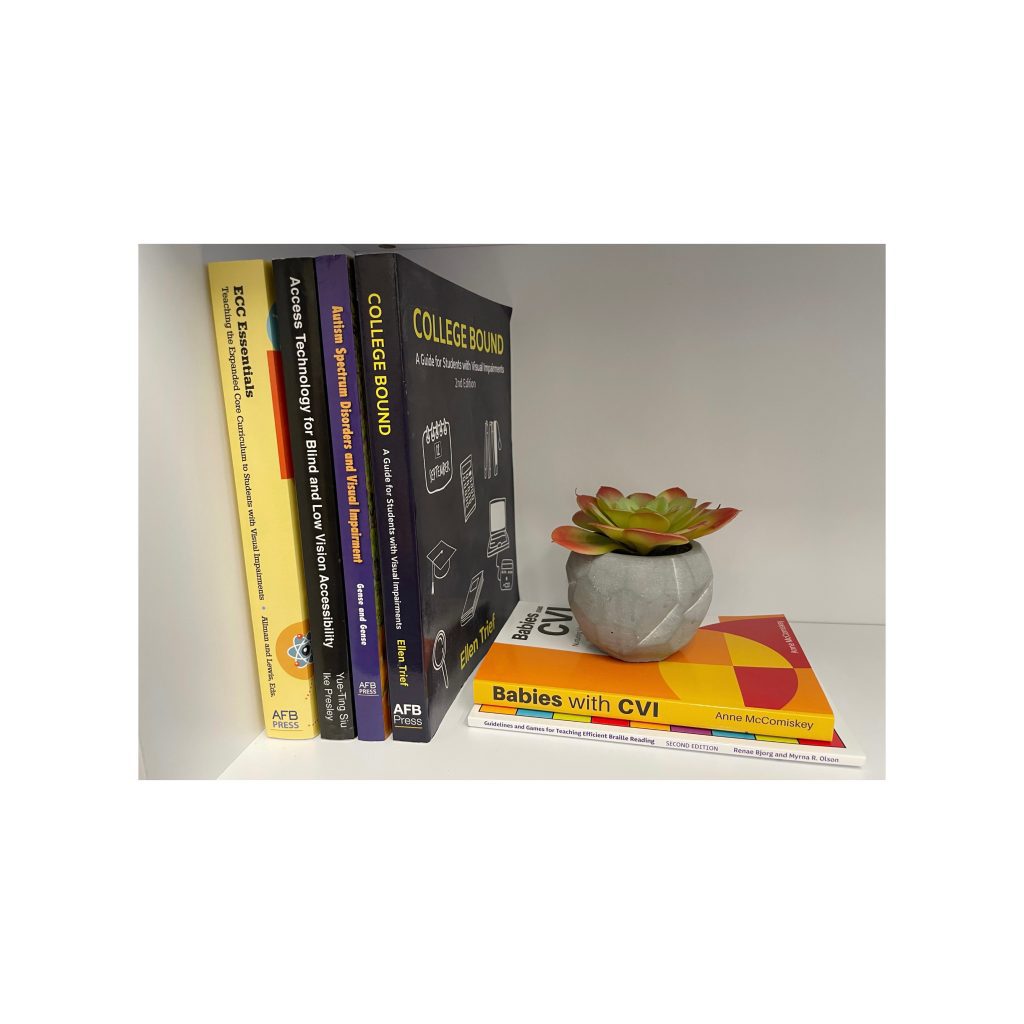APH Press Author Stacey Chambers Talks About Her New Book

In the spring of 2024, Tools for TVIs: The Itinerant Teacher’s Handbook will join APH Press’s esteemed catalog. With a wealth of experience in teaching students with visual impairments, author Stacey Chambers has distilled her expertise into a comprehensive guidebook that promises to be a valuable resource for itinerant teachers. This handbook is the result of 13 years of Chambers refining systems and practices aimed at creating efficient and effective teaching methods. In this interview, we’ll delve into the guiding principles and essential topics that Chambers covers in her upcoming book, which caters to both seasoned educators as well as those new to the field. From organizational tips to navigating the Expanded Core Curriculum (ECC) and addressing multiple disabilities, Stacey’s insights are beneficial to those teaching in this specialized field.
About Stacey Chambers
Stacey Chambers earned her MEd in Visual Disabilities from Vanderbilt University and has been a teacher of students with visual impairments (TVI) in Texas for 13 years. She co-authored Sensing and Learning with APH and is the founder of The E.C.C. & Me, LLC. She is passionate about learners with visual and multiple impairments, as well as making the ECC meaningful and fun for learners, educators, and families.
An Interview with Stacey
Q: Why did you decide to write Tools for TVIs: The Itinerant Teacher’s Handbook?
A: I absolutely love my job as an itinerant TVI. Even so, all the parts I love—the diversity of students, interesting evaluations, collaborating with other professionals, working with parents, visiting different campuses—can also make the career overwhelming at times. While I certainly don’t have it all figured out, I love connecting with other TVIs and sharing tips I’ve learned along the way. I was excited for the opportunity to share my experiences in this book.
Q: How do you think itinerant TVIs will use this book?
A: When I wrote this book, I thought about the itinerant teacher out on their own, a new teacher just entering the field, or a seasoned teacher who is looking for some fresh ideas. I wanted the book to feel like sitting down over a cup of coffee with me, talking about what helps us be great at what we do. Maybe teachers will read it cover to cover, or maybe they’ll keep it in their bag to pull out for a quick idea. I hope they feel connected, encouraged, and inspired each time they pick it up.
Q: How is this book organized?
A: I organized this book as I thought about a TVI’s school year from beginning to end. The book covers distinct aspects of an itinerant’s role throughout the year, and I share strategies for prioritization of our various tasks both through evidence-based practices as well as my personal approach and viewpoints.
Q: What practical content did you include that you think is most helpful to the itinerant TVI?
A: Anytime I could, I shared tangible resources in the appendix or by digital download. I provide sample lesson plans, data sheets, and handouts that can easily be copied or printed and used by teachers right away! I also share examples of how strategies can be applied in various situations.
Q: How did you collaborate while writing the book?
A: I was able to include so many voices of other TVIs and professionals throughout the book. The sidebars, insights, and pearls of wisdom shared make it feel meaningful. We were also intentional about collaborating with TVIs who have visual impairments so they could share their experiences as itinerant TVIs and offer tips they may have for others in the field with visual impairments.
Q: Who are your mentors and how did they influence your writing?
A: In the book, I talk about my mentors, Dr. Karen Blankenship and Millie Smith. Karen always directs me to what research says and what my moral compass says. Likewise, Millie has inspired me to use my voice to make an impact in our field. I hope teachers will find tips in this book that will save them time so they can focus their energy on the parts of the job they love and that have the biggest impact with their students.
Q: How do you apply your teaching philosophy to working with students and caregivers?
A: I talk a lot about this in the book, but I think the TVI’s role is unique in that we can work with students and families for a short time or for many years. The relationships we cultivate with them are an incredibly important component to the impact we have with them. If my students know that I care about them, respect them, and have extremely high expectations for them, I believe I will have the biggest impact possible in their life.
Q: What surprised you during the process of writing Tools for TVIs: The Itinerant Teacher’s Handbook?
A: I learned how much thought and care goes into the process of creating something that represents many voices in the field, infuses available research, and connects with readers on a personal level. I am so grateful for Jess, my editor, who helped me craft something that feels genuine and hopefully will be very meaningful for others in the field. I was surprised (in a good way) that Jess could read my mind at times! It helped take the pressure off getting every word just right, and instead, allowed me to focus on the main point I was trying to get across. I was also surprised and excited to hear that many people are anticipating the release of this book! I can’t wait for others to read it!
Stay tuned to your email inbox and APH News for an announcement about the book release in 2024.
Share this article.
Related articles

Reach Out and Teach: Helping Your Child Who is Blind or Low Vision Learn and Grow
At APH Press, we strive to create books that provide both parents and professionals with the knowledge and resources they...

ATIA 2024 Wrap Up
Last week APH attended the Assistive Technology Industry Association (ATIA) conference in Orlando, Florida. This conference allows assistive technology practitioners,...

APH Press Titles Now Offered on Federal Quota
APH is pleased to begin offering more titles on Federal Quota! The Federal Quota program provides educators funds to purchase...
